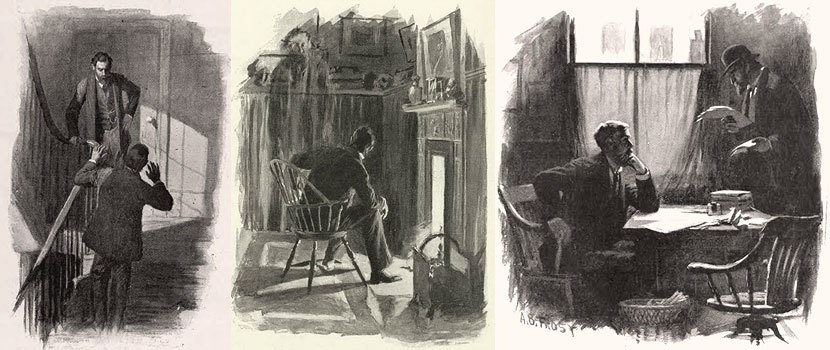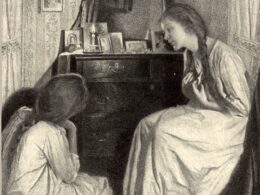John Kendrick Bangs (1862–1922)
From American Fantastic Tales: Terror and the Uncanny from Poe to the Pulps

BOO! It’s the time of the year when families gather around the fireplace and tell ghost stories.
For decades—or centuries, some would argue with plenty of justification—Christmas was (and in some regions, still is) the occasion for telling tales of supernatural phenomena. In fact, the earliest surviving version of “Jack and the Beanstalk” as we know it appeared around 1730 in a collection of “Christmas entertainments” that included chapters on “Hobgoblins, Raw-heads and Bloody-bones,” “Spectres, Ghosts, and Apparitions,” and (for good measure) “Fairies.” The tradition of writing holiday ghost stories and telling such tales on Christmas Eve reached its peak during the Victorian era. On both sides of the Atlantic, dozens of eerie tales crowded holiday annuals, magazines, and even newspapers each December during the nineteenth century.
Here in the States, John Kendrick Bangs contributed a classic of the genre to Harper’s Weekly, where he worked as the humor editor. A comic horror story with a double twist ending, “Thurlow’s Christmas Story” portrays a writer who is having a hard time coming up with a story for the Christmas issue of a magazine. We present it as our Story of the Week selection.



